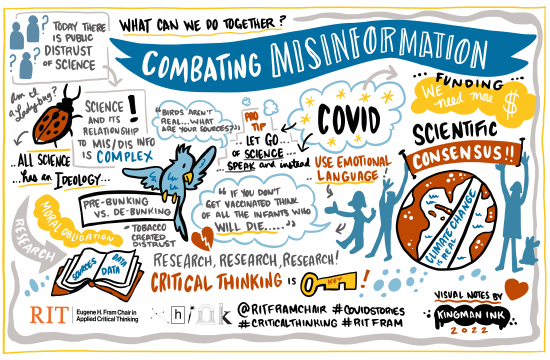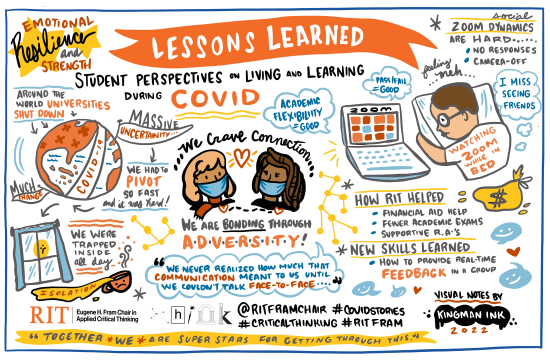By Anna Pasquantonio and Lavender VandeWal
This session opened with some thoughts on the meaning of work-life balance. In many cases, work/life balance isn’t exactly a balance, but a negotiating of the quality of both aspects. Participants spoke of overextending themselves in the early days of the pandemic, believing that time spent working at home meant they’d be doing more work and more life. Instead, they found themselves stressed and burnt out, cycling loads of laundry and caring for children in between Zoom meetings. They found themselves becoming more flexible, but only for work. Participants spoke of feeling like they always had to be “on” and didn’t feel 100% present in either area of their lives.
When the balance between work and life gets unstable it affects everything else in between. Poor work/life balance can lead to burnout, relationship strain, and a lower quality of work. This makes it important to manage a good work/life balance, not just for ourselves but for our family, friends, and coworkers. If one is spending too much time on work, they may not be getting enough rest, or doing the things that allow them to relax like spending time with loved ones. This work burnout leads them to neglect their work and their loved ones, starting a cycle of poor work/life balance. Due to the pandemic the lines between work and life got fuzzy as we all began to work from home. This doesn’t make the work/life balance any less important.
So the question is, when the lines between work and life get blurred, how do we redraw them? The group discussed things that helped reduce work stress, like spending quality time with family and ensuring that work devices are off during that time, and ways to reduce home stress at work like having separate work rooms for different members of the family. One couple who both work at RIT said that they had begun fully ‘clocking out’ at 5, not discussing work together, and not checking work emails or devices. This allowed them to draw a clear line between life and work. By allowing oneself to separate work and life easily and firmly, they can ensure that they are putting enough work and enough life into their personal balance.
Whether that is turning off devices at certain times, or scheduling life time into your days just as you would work, these boundaries need to be set. When everyone has a comfortable balance, we can all do better for each other.




